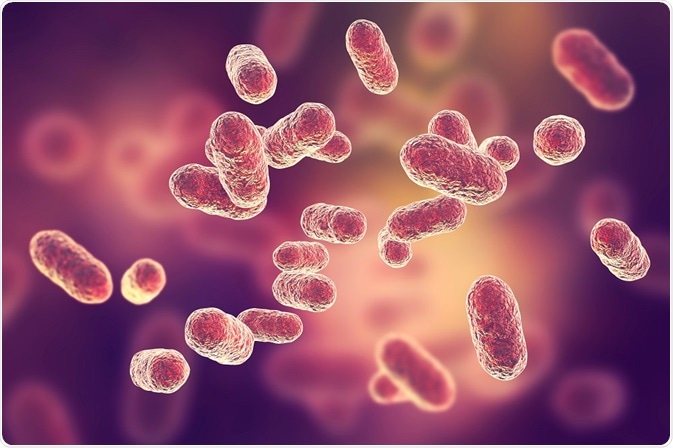Just before a human baby is born, it’s body is entirely sterile. This rapidly changes, however, when the mother gives birth. As a child passes through the birth canal, it is faced with a biofilm of microbes. These microoganisms quickly colonize the baby, forming the early microbiome.
 Credit: Kateryna Kon/Shutterstock.com
Credit: Kateryna Kon/Shutterstock.com
What is a microbiome?
The human microbiome is each individual person’s own ‘microbiological collection’. It is a collection of organisms, including bacteria, fungi and viruses that colonize surfaces within the human body throughout life. The microbiome is a mutual relationship that is crucial to many bodily systems.
The microorganisms on and inside the human body outnumber human cells 10 to 1. These organisms play an important role in many reactions in the human body, most notably; the immune system and the digestive system.. In short, the microbiome is required for humans to live – and therefore, each person’s microbiome can affect biological development.
How the microbiome affects the body and aging
It is already known that the gut microbiome can be predictive of certain conditions, such as some types of kidney stone, as well as type 2 diabetes. The microbiome can also be studied to evaluate a person’s immune system and digestion.
In some cases, it can even be used to improve the condition of a disease; this involves the transfer of microorganisms from one person to another, through a faecal transplant. This helps to build a person’s microbiome diversity after it has been severely depleted or compromised.
Another example of the human microbiome affecting health can be seen just after birth. As aforementioned, babies born naturally are exposed to a plethora of bacteria whilst passing through the birth canal.
Babies who are born by caesarean section by-pass the birth canal, so therefore are not exposed to the same ‘bacterial film’ as babies born naturally. It has been observed that babies born by caesarean section are slightly more likely to develop health conditions such as asthma and allergies, which some scientists believe could be linked to the lack of bacterial exposure at birth.
The human microbiome can be linked to a lot of health conditions. This can therefore provide an insight into how a person will age, in terms of predicting the possibility of contracting any illnesses in the future.
This is reflected by the fact that the microbiomes of older people are significantly more varied than the microbiomes of people that are younger – this is valid throughout all age groups. This is because, as a person ages, the number of bacteria that person is exposed to increases. This can be due to many factors: from contracting an illness, to eating a new type of food. This exposure can assist in improving the immune system, but could also play a part in its degradation.
A few common issues in aging can be tracked back to the microbiome – such as digestive issues, or urinary tract infections causing mental health issues in the elderly. It is thought that these issues could be prevented by simply upkeeping a diverse microbiome.
Microbiome adjustment
The human gut microbiome can be changed through the means of diet, for example, eating a more plant-based diet, or consuming more pro-biotic foods such as live yogurts, sauerkraut, and miso soup is thought to assist in improving the gut microbiome diversity. Increased microbiome diversity is important for upkeeping the immune system and for good digestion.
Pro-biotic supplements are becoming increasingly popular, as public knowledge of the links between the gut microbiome and illness and aging improves. Tests have proven that the consumption of these supplements, alongside a healthy diet (as well as the consumption of pro-biotic foods), could completely remodel the gut microbiome – especially in those who have a depleted microbiome due to the use of antibiotics.
Further Reading
Last Updated: Feb 26, 2019